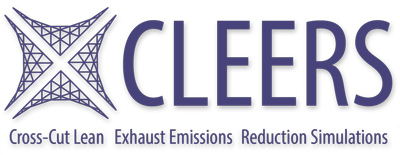Current Progress and Future Challenges in Diesel Particulate Filtration Systems
Athanasios Konstandopoulos, APT Lab, CERTH/CPERI
The presentation addresses the current state of knowledge on Diesel Particulate Filtration Systems drawing from our recent work in the field. Our thesis has been that in order to meet tomorrow’s challenges and deliver highly compact and efficient emission control devices in the future, a deeper understanding and more detailed description of the coupled transport, structural and reaction micro-phenomena occurring at the filter wall and pore scales is indispensable. This leads to the development of advanced catalytic filter technologies based on traditional as well as novel routes for catalyst synthesis with optimized chemistry and deposition mode in the filter. A combined experimental and computational methodology for assessing the developed technologies is then described, starting from well-defined experiments with small scale filters under realistic exhaust conditions and continuing with full scale emission control system integration and testing in the exhaust of a modern light-duty diesel engine over steady state and transient operation. A virtual soot sensor and a model-based control strategy of the emission control system are shown to be important elements for ensuring energy-efficient operation. Finally we conclude with a discussion of themes where collaborative work is needed to establish standards and recommended practices for modern Diesel Particulate Filtration systems.

